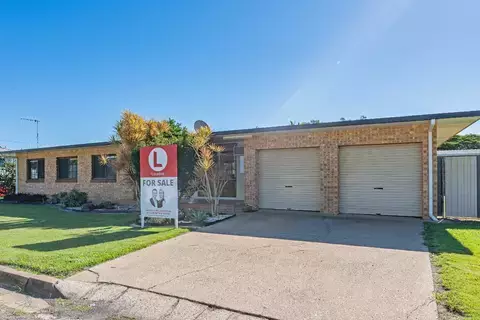Property conveyancing is the legal process of transferring ownership of property from one person to another. In Bundaberg, as in the rest of Queensland, conveyancing involves several key steps to ensure the process runs smoothly, legally, and without unexpected complications. Whether you're buying or selling, understanding these steps can save you time, money, and potential legal trouble. With expert guidance and sound Bundaberg property legal advice, you can navigate the process confidently.
1. Engage a Qualified Conveyancer or Solicitor
The first and most crucial step is hiring a qualified conveyancer or solicitor who understands Queensland’s property laws. Choosing a local professional ensures they are familiar with regional issues, including council regulations, zoning, and common title disputes. Scott Wade, a well-known name in Bundaberg’s property sector, recommends starting with a legal expert early in the process to identify potential risks in the transaction and provide appropriate guidance.
Your conveyancer will handle everything from reviewing contracts to liaising with banks, government agencies, and the other party’s solicitor.
2. Contract Review and Preparation
Once you engage a conveyancer, the next step is reviewing (for buyers) or preparing (for sellers) the Contract of Sale. The contract contains vital information like purchase price, settlement date, and any special conditions. A legal review ensures the terms are fair, legally sound, and comply with Queensland legislation.

Buyers should insist on a cooling-off period, pest and building inspections, and financing clauses, while sellers should make sure they disclose any known defects or encumbrances.
3. Conducting Property Searches
Your legal advisor will carry out several property searches to uncover any legal, financial, or physical issues with the property. These include:
- Title search to confirm ownership and identify easements or covenants
- Land tax and rates searches
- Zoning and development restrictions
- Environmental reports
These searches are critical in making an informed decision and are part of the essential Bundaberg property legal advice that a reliable solicitor or conveyancer will provide.
4. Satisfying Special Conditions
Most contracts contain special conditions, such as obtaining satisfactory building and pest inspection reports or securing financing approval. These must be satisfied within the specified timeframes; otherwise, the contract could be terminated, or penalties may apply.
Buyers should act swiftly during this period and communicate with their solicitor regularly to meet these conditions and avoid contractual issues.
5. Exchange of Contracts
Once all special conditions are met and both parties agree to the terms, contracts are exchanged. This is the point where the agreement becomes legally binding. The buyer usually pays the deposit, which is held in a trust account until settlement.

From this stage forward, backing out of the contract without a valid reason can result in financial penalties.
6. Preparing for Settlement
Leading up to settlement day, your conveyancer or solicitor will prepare all necessary legal documents and liaise with financial institutions to coordinate payment. They will also confirm rates and adjustments such as council fees or water charges to ensure accurate settlement calculations.
This is a complex phase where minor errors can result in delays or disputes, so having a professional like Scott Wade handling the paperwork is an excellent way to ensure everything proceeds without complications.
7. Final Inspection and Settlement
A day or two before settlement, buyers typically conduct a final inspection of the property to ensure it is in the same condition as when the contract was signed.
On settlement day, the legal ownership of the property is officially transferred. The buyer pays the remaining balance of the purchase price, and documents are lodged with the Titles Office. The buyer then receives the keys, and the property transaction is complete.
8. Post-Settlement Tasks
After settlement, your solicitor will finalise the registration of your ownership with the Land Titles Office and ensure the seller is removed from local council and utility records. Buyers should also consider updating their address with banks and insurers.
Conclusion
Property conveyancing in Bundaberg involves a series of legal steps, from initial contract review to post-settlement updates. The process can be complex and time-sensitive, which is why seeking Bundaberg property legal advice from experienced professionals is essential. Whether you're buying your first home or selling an investment property, working with a trusted expert like Scott Wade can make the journey stress-free and successful.







